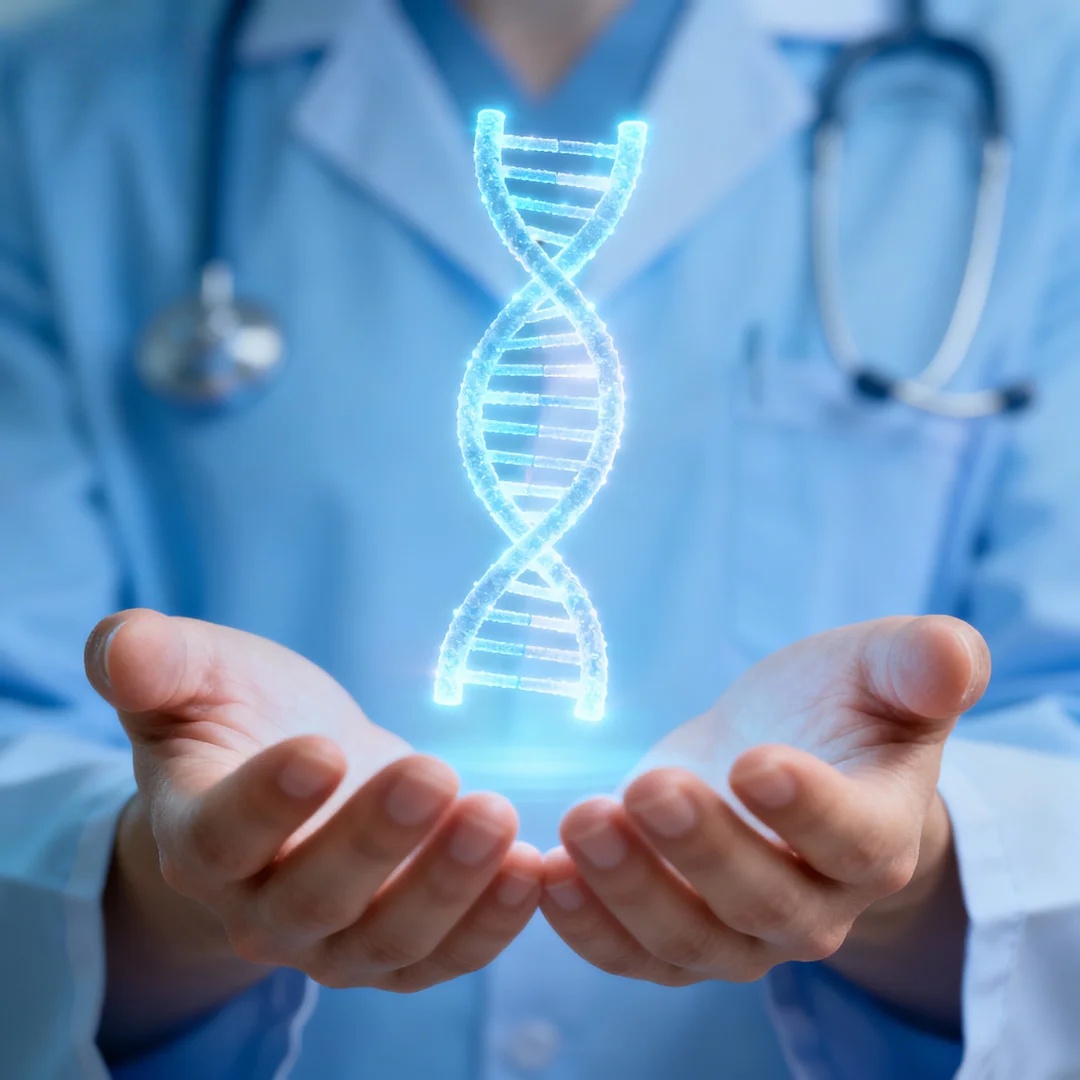When people first begin exploring gestational surrogacy, one of the most common questions—asked in fertility clinics, support groups, and Reddit threads—is:
“Does the baby get any DNA from the surrogate?”
The short answer for gestational surrogacy is No.
But the long answer is worth understanding because it helps intended parents feel fully informed and confident about the science behind surrogacy.
This article explains how genetics work in surrogacy, what parts of pregnancy can influence the baby, and why modern gestational surrogacy is designed to protect genetic parentage.
1. The Two Types of Surrogacy (Only One Affects Genetics)
To understand DNA inheritance, it’s important to distinguish between two very different forms of surrogacy:
1. Traditional Surrogacy (Genetic Surrogacy)
- The surrogate uses her own egg.
- She is genetically related to the baby.
- Rare today in the U.S. due to legal and emotional complexity.
- Most agencies and clinics do not offer it.
2. Gestational Surrogacy (Modern Surrogacy)
- The surrogate carries an embryo created via IVF using:
- The intended mother’s egg or an egg donor’s egg, and
- The intended father’s sperm or a sperm donor’s sperm.
- The surrogate does NOT provide the egg.
- She has no genetic link to the baby.
Over 95% of U.S. surrogacy cases are gestational, according to ASRM (American Society for Reproductive Medicine) guidelines.
2. Why Gestational Surrogacy Does NOT Affect DNA
DNA comes only from the egg and sperm.
Human DNA is determined at the moment of fertilization when sperm and egg combine. The gestational carrier (surrogate) contributes:
- No egg
- No sperm
- No chromosomes
- No genetic material
This is supported by reproductive endocrinology literature and commonly discussed in threads like r/IVF and r/surrogacy, where nurses and embryologists repeat:
“A gestational surrogate’s role is entirely physical, not genetic.”
The surrogate’s uterus = environment, not genetics.
She provides:
- Nutrition
- Oxygen
- Hormonal support
- A safe environment for embryo development
But she does not modify the baby’s DNA.
3. But Can the Surrogate Influence the Baby in Other Ways?
This is where things get interesting—and where many Reddit users get confused.
Even though she doesn’t pass on DNA, the surrogate’s body can influence development through epigenetics.
Epigenetics ≠ genetic inheritance
Epigenetics refers to how genes are expressed, not the genes themselves.
This means:
- The baby’s DNA stays the same,
- But gene activity can be slightly influenced by the pregnancy environment.
Examples of epigenetic influences (supported by prenatal biology research):
- Maternal nutrition
- Stress levels
- Hormone levels
- Exposure to toxins or medications
These influences exist in every pregnancy—natural or surrogacy—but they do not change genetic identity.
Think of it this way:
DNA = hardware
Epigenetics = software settings
The hardware comes entirely from the egg and sperm.
The software can be shaped by the pregnancy environment.
But even epigenetic effects are usually small and not long-lasting.
4. What Do Fertility Experts Say?
Reproductive specialists overwhelmingly agree:
✔ Gestational surrogacy does not alter DNA
✔ The surrogate is not genetically related
✔ Parentage is established genetically and legally
ASRM and leading U.S. IVF clinics publish consistent guidelines reinforcing that gestational carriers are not biological mothers in any genetic sense.
5. What Do Surrogates Say? (Insights from Reddit)
In r/surrogacy, many surrogates respond to concerned intended parents:
- “I’m just the oven, not the ingredient provider.”
- “The baby isn’t mine biologically—I’m only helping carry it.”
- “Your DNA stays your DNA.”
Intended parents on forums also report that DNA testing (NIPT or post-birth cheek swabs) always confirms biological parentage.
6. Are There Any Situations Where Surrogacy Could Affect DNA?
Realistically, no, not in gestational surrogacy.
Only these exceptional (and intentionally avoided) situations could introduce genetic involvement:
1. Traditional surrogacy
The surrogate uses her egg → She is genetically related.
2. Embryo mix-ups (extremely rare)
Very rare lab errors could result in embryos being swapped.
But U.S. clinics follow strict chain-of-custody policies to prevent this.
3. Misunderstanding epigenetics
Again, gene expression ≠ inheritance.
In all standard gestational surrogacy arrangements:
The baby’s DNA is NOT affected by the surrogate.
7. Why This Distinction Matters for Intended Parents
Understanding the genetics helps ease emotional concerns, especially for:
✔ Single fathers
✔ Same-sex male couples
✔ IVF patients using an egg donor
✔ Parents worried about resemblance
Genetics influence:
- Appearance
- Personality predispositions
- Medical history
- Ancestry
Since the surrogate contributes none of these, intended parents retain full biological identity from egg + sperm contributors.
Conclusion: The Surrogate Helps Carry the Baby — But Does Not Shape Its DNA
To summarize:
Gestational Surrogacy:
- ❌ No DNA from surrogate
- ✔ DNA from egg + sperm
- ✔ Surrogate provides environment, not genetics
Traditional Surrogacy:
- ✔ Surrogate is genetically related
- Rare today and not used by most agencies
Understanding this difference allows intended parents to move forward with clarity and confidence.




